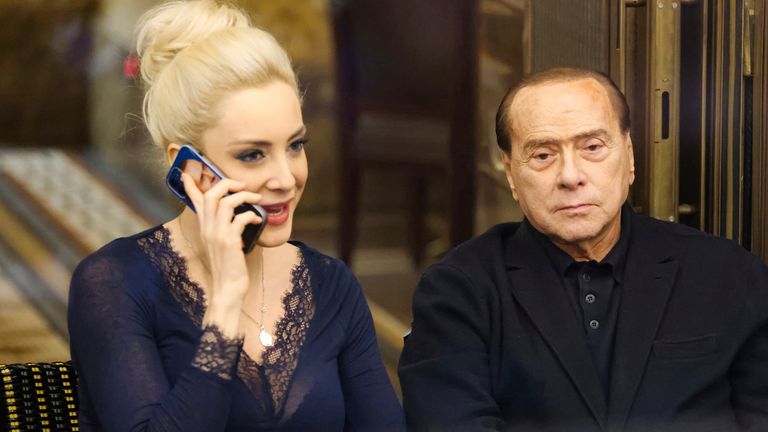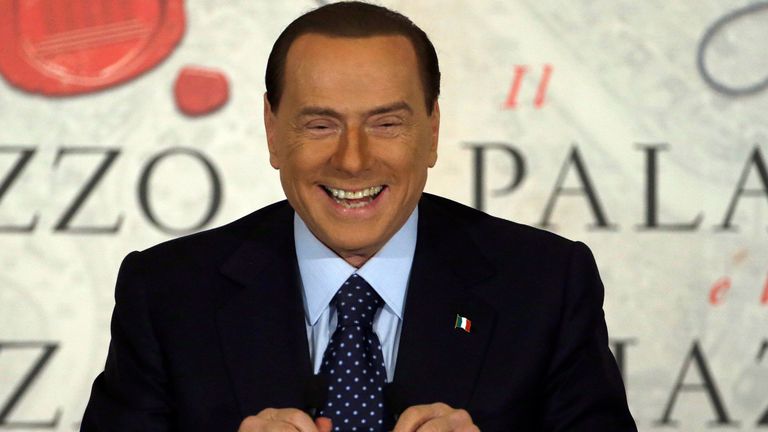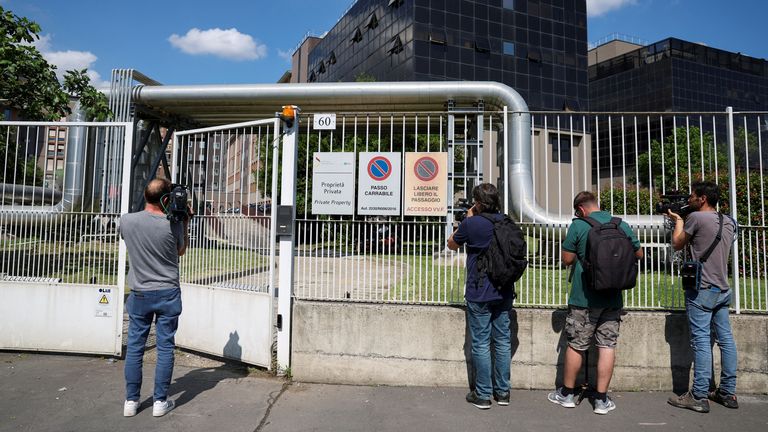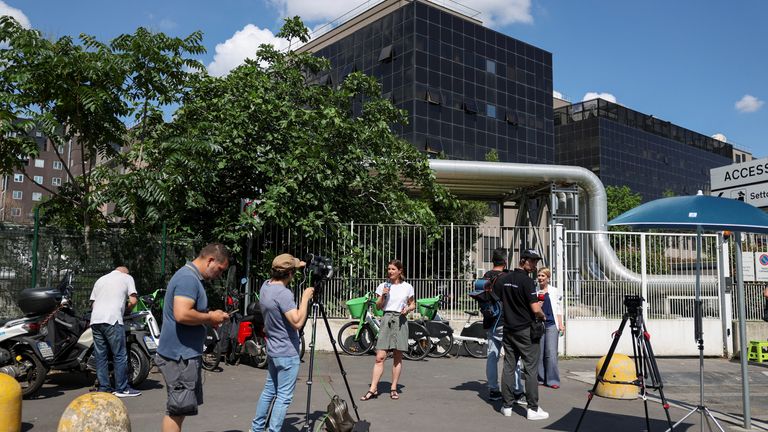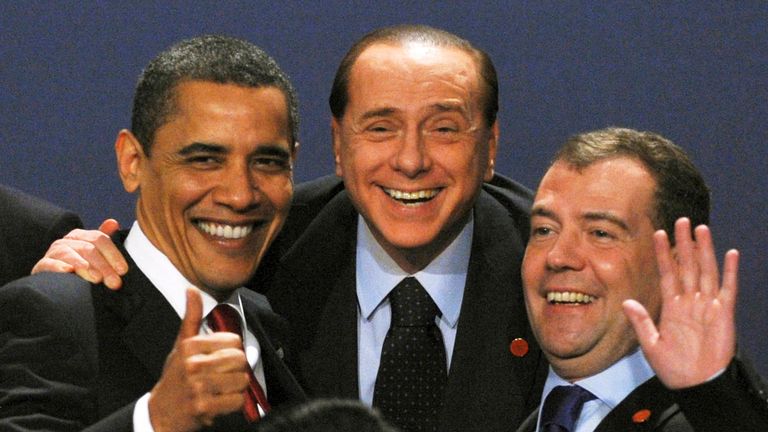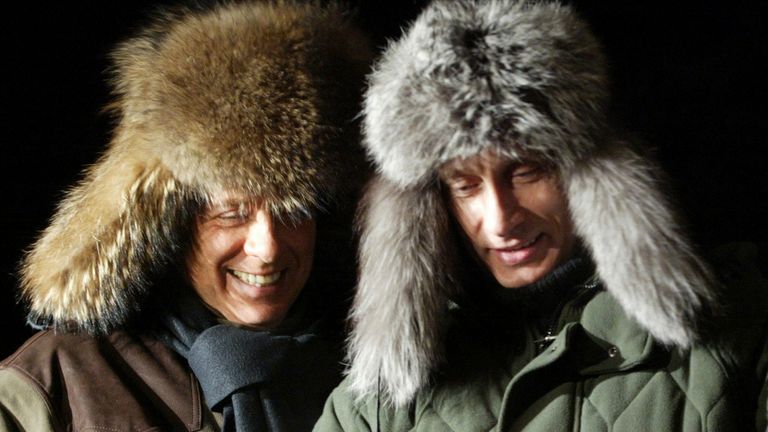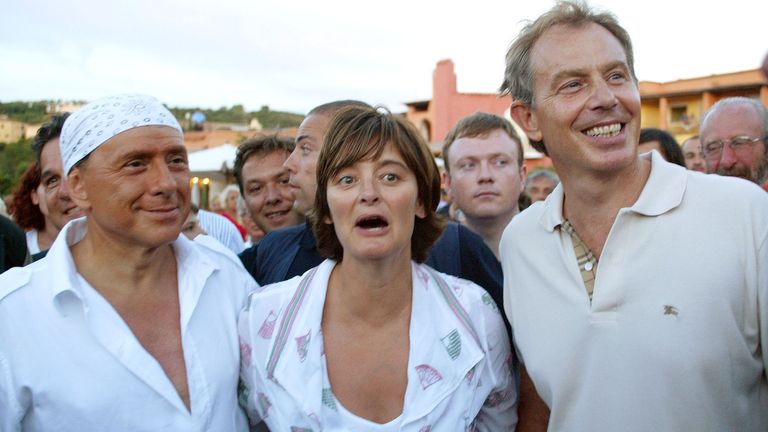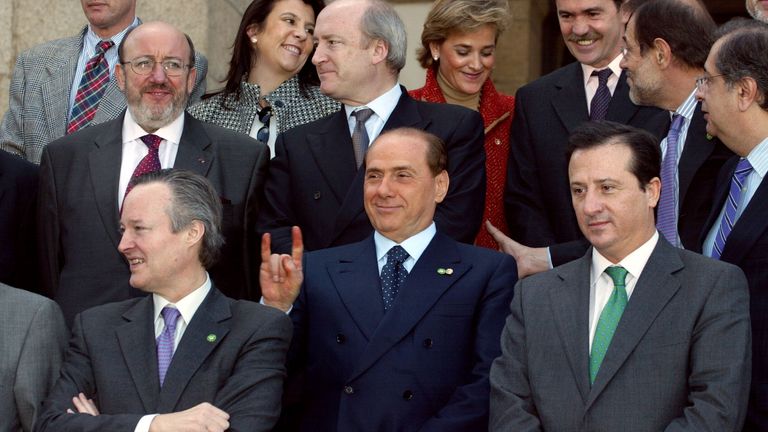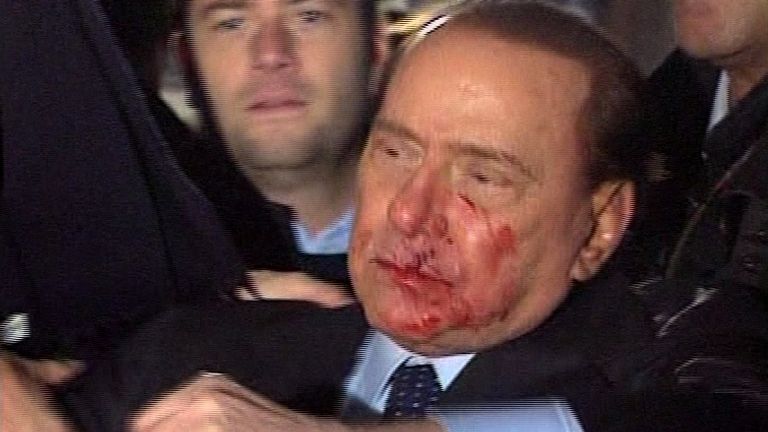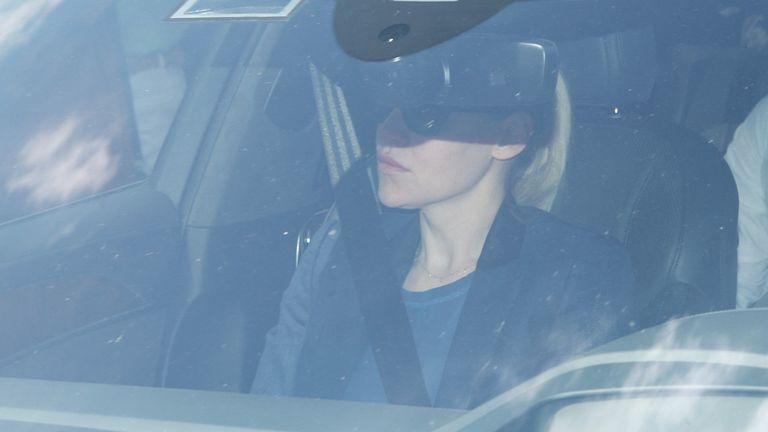[ad_1]
Italy’s controversial former prime minister Silvio Berlusconi has died.
The 86-year-old senator and leader of the Forza Italia party, whose string of financial and sex scandals made him the most polarising figure in modern Italy, was admitted to hospital on Friday.
He had been discharged from hospital last month where he was treated for over six weeks for a lung infection linked to chronic leukaemia.
Mr Berlusconi’s death brings an end to one of the most colourful and controversial political careers of recent times, with the scandal-hit prime minister famous for his notorious “bunga bunga” parties.
The sex parties, which involved prostitutes, caused a major scandal in Italy.
‘Many loved him, many hated him’ – reaction as Berlusconi dies
Magistrates say he paid thousands of euros for sex with Moroccan-born nightclub dancer Karima El Mahroug, alias “Ruby the Heart Stealer”, when she was underage in 2010.
He denied this but admitted springing her from a police station by falsely claiming she was the niece of then-Egyptian president Hosni Mubarak.
El Mahroug had been arrested in Milan after being accused of the theft of €3000 (£2570).
A court eventually acquitted him of having sex with a youth, saying he was not to know she was under 18.
Although Mr Berlusconi made light of his reputation as a philanderer, his second wife Veronica Lario did not and she asked for a divorce, saying she could not live with a man who “frequented minors”.
Mr Berlusconi, well known for his brash and ebullient personality, led Italy three times from 1994-1995, 2001-2006 and 2008-2011.
He stepped down as prime minister for the last time in 2011 as Italy came close to a Greece-style debt crisis, facing several scandals.
A decade ago he was banned from holding public office over a tax fraud conviction stemming from dealings in his media empire, but the ban was lifted in 2018.
Defying the tide of time, Mr Berlusconi campaigned ahead of a 2022 national election, but his famed sparkle had faded and his once predominant Forza Italia (Go Italy!) party, riven with divisions, took barely 8% of the vote – its lowest ever score.
However, it was enough to secure a return to government as a junior partner in a rightist coalition, with Mr Berlusconi himself winning a senate seat, ending his parliamentary exile.
Legal woes accompanied Mr Berlusconi throughout his political career and he was convicted in at least seven cases on serious charges, including bribing a senator and paying off judges.
Those convictions were eventually overturned on appeal or swept from the courts by the statute of limitations that gives
magistrates a set period of time to complete their prosecutions – time that one Mr Berlusconi administration sharply reduced.
Read more:
Analysis: Berlusconi set the mould for other populists to follow
Mr Berlusconi was one of the most extraordinary characters to come out of Italy’s often bizarre political landscape, a flamboyant figure whose off-colour jokes alone would have killed a political career in most European Union countries.
After Barack Obama was elected the first African-American president of the United States, Mr Berlusconi congratulated him for being “tall, handsome, and suntanned”.
Meanwhile, last year he triggered uproar with comments about Russian President Vladimir Putin when he boasted the two had exchanged birthday greetings.
Mr Berlusconi also blamed Ukrainian President Volodymyr Zelenskyy for the war.
An entrepreneur-turned-politician
With an unassailable self-confidence and a sharp entrepreneurial spirit, Mr Berlusconi built Italy’s largest commercial TV network before entering politics in 1994.
The self-made billionaire, who owned the Italian football team AC Milan between 1986 and 2017, used his wealth and media prowess to enter the fray, upending traditional parties in a way that another property mogul, Donald Trump, later did when he was elected US president in 2016.
His many critics say he used his power primarily to protect his own business interests, pointing to Italy’s weak economic record and unchecked corruption during his lengthy stints in government.
Mr Berlusconi himself said he only entered politics to halt the left.
“Politics was never my passion. It made me lose a lot of time and energy. If I entered the ring, it was just to prevent the communists from taking power,” he told Chi magazine in an interview to mark his 80th birthday in 2016.
Italy’s deputy prime minister Matteo Salvani said after Mr Berlusconi’s death: “Today a great Italian bids farewell to us. One of the greatest ever, in all fields, from all points of view, without equals. But above all, today I lose a great friend. I am devastated and I rarely cry, today is one of those days.”
Hungary’s prime minister Viktor Orban tweeted: “Gone is the great fighter. Rest in peace, my friend.”
Former Italian prime minister Giuseppe Conte said: “Silvio Berlusconi was an entrepreneur and a politician who contributed to writing significant pages of our history in every field in which he ventured.
“He has ignited and polarised the public debate perhaps like no other, and even those who have faced him as a political opponent must recognise that he has never lacked courage, passion, tenacity.”
Berlusconi’s recent health troubles
The former Italian leader was treated in intensive care at Milan’s San Raffaele Hospital in April for a lung infection related to leukaemia, his doctors said at the time.
They added he had chronic myelomonocytic leukaemia – a rare type of blood cancer – that was not acute.
Berlusconi suffered several bouts of ill health in recent years, including contracting COVID in 2020.
After being discharged from a 10-day hospital stay, he said the disease had been “insidious” and was the most dangerous challenge he had ever faced.
He has had a pacemaker for years, underwent heart surgery to replace an aortic valve in 2016 and had overcome prostate cancer.
Under Italian law, all five of Mr Berlusconi’s children will receive a share of his assets, while Forza Italia might struggle to survive without him at the helm.
[ad_2]
Source link


